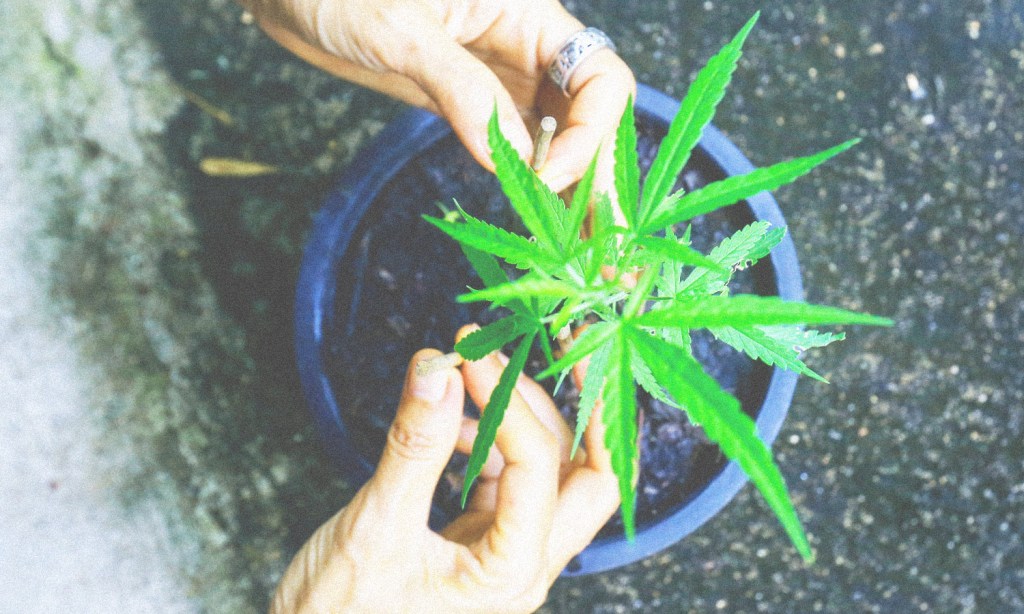Last week, the Australian Greens unveiled a plan they’ve been working on to federally legalise cannabis within a year.
According to legal advice they’ve sought, Australian Parliament has the constitutional authority to override existing state and territory laws related to the outlawing of cannabis. Instead, their bill, which they seek to have drafted for public consultation by the end of this year, would create a national market for legal weed.
The move could open up the national dialogue around how we treat the drug and those who choose to use it. Although no mainstream politician wants to be the one caught with this political hot potato, Australian attitudes to the drug have already moved well ahead.
The latest national survey data indicates that 78% of Australians over the age of 14 don’t support criminalising the possession of cannabis, while more than 40% believe cannabis should be made legal for recreational use.
In response to the Green’s announcement, Attourney General Mark Dreyfus told The Australian that the Albanese government would not propose legislation to legalise cannabis, although declined to justify the decision.
“The Australian government does not propose to legalise the production, sale and use of cannabis,” a spokesperson for Dreyfus stated.
Senator Jacqui Lambie dismissed the idea on the Today show by saying “I don’t think I’ll be puffing on that”
Compare this tepid reaction with the bold shift undertaken by Thailand just a few months ago. In June, the nation once at the centre of the global ‘war on drugs’, famous for its tough penalties, including death, for drug use, legalised the cultivation, sale and possession of cannabis.
Already, foreign entrepreneurs and locals are rushing to cash in on the changes, with Thailand being described as “the new Amsterdam” in a recent ABC article. If Thailand can do it, surely Australia can too?
What The Greens Are Proposing
“This is the first time any attempt has been made to legalise cannabis through the Federal
Parliament,” the Greens write in their proposal.
They’re currently drafting up a “simple, effective and comprehensive legalise cannabis law” that would regulate the cultivation, licencing, and sale of cannabis. They say that once this law takes effect, it would override state-level legal sanctions.
They argue that the war on drugs has failed, that the current system drags people unfairly into criminality, and that it disproportionately affects Indigenous, low-income, and younger people.
Drawing on a 2017 Victorian police report, they state that legalising the drug would bring in a retail market of $8 billion in the southern state alone. Other reports cited indicated a national market could be worth higher than $14.8 billion.
How Cannabis Is Fairing in Thailand
The Green’s proposal is not that dissimilar from the current laws that have been rolled out in Thailand.
On June 17, Thailand removed cannabis from a list of prohibited substances, moving it into existing traditional medicine laws. That means it can be grown for personal consumption, but selling it requires a licence. It also cant be used by people under the age of 20, pregnant women, or breastfeeding mothers.
Cannabis flower is unregulated but extracts can only have a minuscule 0.2% THC in them, the psychoactive component of cannabis.
When the law came into effect, more than 3,000 people jailed for cannabis possession were released from prison and had their criminal records wiped.
However, Thailand is somewhat grappling with the implications of their new legal reality. Although the take-up has been rapid and vast, Deputy Prime Minister Anutin Charnvirakul has said that recreational cannabis is not legal and that it can only be used for “medical purposes.” In addition, he has rejected the idea of cannabis tourism.
While there has been regulatory confusion around the drug, farmers and distributors seem happy to be able to sell a product legally that has massive commercial potential.
Australia, for its part, has already committed to being an “international leader in medicinal cannabis” and, at present, simply cannot grow enough cannabis to fulfil domestic supply for medicinal weed.
This is thanks to a massive uptake of legal medicinal cannabis in the past few years, something analysts suspect is black-market users transitioning to the wildly easy access pathway of medicinal usage.
Even still, governing Australian politicians are still not publically prepared to take seriously the highly evidenced claims that The Greens are making. Industry experts however belive that the argument has already been won, at least on a public health level.
Director of the National Drug Research Institute, Simon Lenton, told The Australian that cannabis should be legalised, but only after a considered debate into what that legal model would look like.
“We shouldn’t be going down the fully commercialised profit-driven model like alcohol and tobacco,” he said.
“Instead, we might have cannabis social clubs, or allow small numbers of people to access the drug through approved stores. Or, we don’t allow promotion.”
While there are a million different models to choose from, it’s clear the current one is doing more harm than good. Hopefully, the Green’s proposal can kickstart a sensible conversation we’re desperately overdue having.
Related: The Pandemic Could Be Behind a Medical Cannabis Boom in Australia
Related: Apparently, Some People Smoke Weed: Grace Tame and the Normalisation of Cannabis
Read more stories from The Latch and subscribe to our email newsletter.

